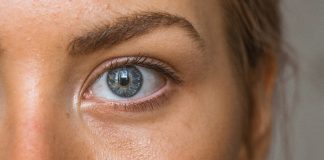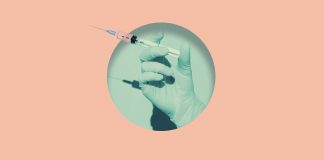COVID-19: Crisis prayer
A major crisis pushes us to re-evaluate the way we see and do things in the fields of health, finance, and social interaction. But how does this crisis affect our religious practices—especially the most common of these, prayer?
COVID-19: Which end is The End?
As the crisis caused by the new coronavirus deepened and spread, it was to be expected that the phenomenon would be framed in apocalyptic terms. It is something that tends to occur in such contexts.
COVID-19: What is my risk of developing a serious form of the disease?
Tueday, 31 March 2020, marked exactly three months since the World Health Organization, the Chinese office, was notified of incidences of pneumonia from an unknown cause. According to specialists from the Robert Koch Institute in Germany, we have not yet reached the peak of the pandemic in Europe. We hear about mild and asymptomatic cases, but also about many deaths globally.
Life after COVID-19: What will the new normal be?
Many certainties and convictions will be swept away. Many things that we thought were impossible are happening. The day after we have won, it will not be a return to the day before; we will be stronger morally.
COVID-19: Crisis prayer and the crisis of our prayers
I was descending from Omu Peak, in the Bucegi Mountains, with a few dozen young people. It had not been an ideal hike, and we were behind schedule. The forest made the darkness even thicker as it began to cover the mountain, and slowly, our minds as well.
COVID-19: What we have (not) missed during the lockdown
Life in lockdown had an atypical rhythm and texture. While for some this upset their daily lives, for others it was an unexpected response to an unspoken need.
Daily habits for a good memory
It happens to all of us. We misplace the keys, forget a phone number or where we put our reading glasses. With age, such things happen more often, whether we like it or not. The good news is, our brain continues to produce new cells regardless of our age. Therefore, it is possible to have a good memory despite the aging process.
The happiest people in the pandemic
“How can we rejoice if we’re at war?” This was one of the questions that arose in my mind after reading a book comprised of testimonies of people who experienced World War II as children. Decades after this nightmare, and stricken by a crisis that casts its shadow over people and nations everywhere, the question remains: can we still be happy in times...
Dealing with negative emotions in times of crisis
Many years have passed since I last lived with my brother. Recently, I decided to go and stay with him for a while. One day we both decided to visit a place in nature that neither of us had been to before. When we got there, it started to rain—while not very heavy, rain was not what either of us had wanted. But...
Vaping: New war, same enemy
Breathing is an act most of us take for granted, and there seems to be plenty of oxygen to go around. Yet, according to the World Health Organization, the use of e-cigarettes (aka vaping) has been on a steady incline during the last few years.
The fresh air advantage
It’s something many of us overlook, yet the research is showing that getting outside is better for us than we might imagine.
Menstruation, a taboo still difficult to break even in 2021
Lack of access to menstrual hygiene is the fifth leading cause of death worldwide among women. In the world, 1 in 3 girls faces the impossibility of ensuring adequate hygiene during menstruation, and many others face sometimes fatal arbitrary limitations imposed by culture.
The light of the eyes and mind
In Mexico, diabetic retinopathy is a significant challenge. Professor Pedro Gomez is the director of the Ophthalmology Institute of the University Hospital of Montemorelos in Mexico, renowned for the highest number of eye surgeries in Latin America.
Immunization against COVID-19: How often should the vaccine be repeated?
How long does the protection provided by the vaccine last? Should I have a booster shot after a while, or not?
Bittersweet
In terms of their effect on health, there is no difference between white and brown sugar. Sugar substitutes should not be consumed indiscriminately either.


























